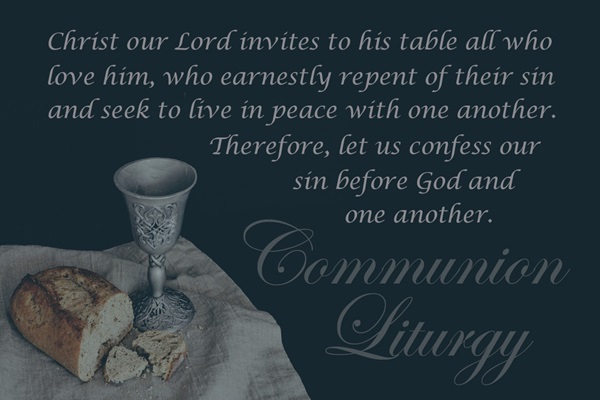When we talk about sin, we are referring to the state of sinfulness / brokenness / incompleteness in which we live. In that state of sin, we also commit sins, specific things we do (or fail to do) that are contrary to the will of God.
Read more
We know our need to confess our sin before God and one another. Before receiving communion, when the pastor says, “Therefore, let us confess our sin before God and one another,” we are being invited to confess and repent (turn) from the state of sin in which we find ourselves and from the sinful acts we have done.
Together we pray a confession of sin - the ways we as the Body of Christ, made up of its individual believers, have not lived into all we are called to be and do. The spoken prayer acknowledges the sinful ways of life in which we have continued as individuals (individual sin), as a gathered community (collective sin), and as part of larger bodies in which we participate (corporate sin). The time of silent prayer between the unison confession and the words of pardon provides opportunity for each person to acknowledge to God their specific sins and their commitment to turn from them toward God's ways (repent).
Together, corporate confession of sin, individual confession of sins, and seeking God's forgiveness and power to turn from our sinful ways and deeds are how we "earnestly repent of our sin."
After the prayer of confession, United Methodists share words of pardon to remind us of the grace freely available to all who repent. "In the name of Jesus Christ, you are forgiven!"
Sin is a persistent force in our lives. It is only through acknowledging our sin and its hold in our lives that a process of restoration can begin. The good news is that when we confess our sin, God promises to forgive us (1 John 1:9).
This content was produced by Ask The UMC, a ministry of United Methodist Communications.





